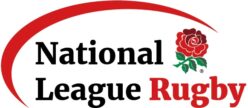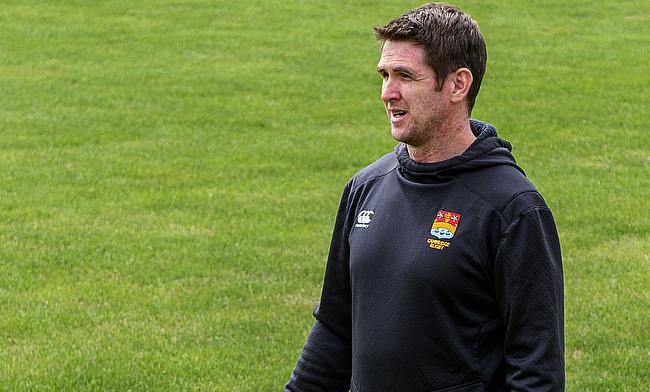Coaches Corner: Richie Williams
Current Cambridge Director of Rugby, Richie Williams, is writing a series of columns on the ncarugby.com website to give readers an insight into what life is like as a coach in the game. Photo Credit: (Chris Fell)
In Richie’s most recent post, he reflects on his time working with the Hungry Rugby Union as well as his early days of coaching in the National Leagues…
10am, July 13th 2019, Stade Michel Bendichou, Colomiers. France v Hungary in the opening game of the Olympic 7’s qualification tournament.
This moment for me signified the journey that the Hungarian team had been on. We began the process in 2016 and set out a clear vision of what could be achieved if we put some simple systems in place and had the right people supporting the program. The narrative of a ‘bus journey’ to our final destination became a reality, despite a number of roadblocks along the way.
Over the next three years, I travelled two, sometimes three times a month to Budapest to assist with the playing and coaching development of the Hungarian Rugby Union. It still makes me smile thinking back to some of the 4am journeys down the M1 to Luton Airport. I would arrive in Budapest for 10am, go straight to a rugby club and deliver three maybe four sessions back-to-back to U16’s, U18’s and senior international teams. It was tiring, but the cocktail of adrenaline and passion carried me through.
Great first day over in Hungary. Exciting program in place for the future. #olympicdreams pic.twitter.com/xtbYAmBueH
— Richie Williams (@RichieWills10) April 14, 2016
I met some of the friendliest and most hospitable people that live on this planet. It also reinforced why I fell in love with coaching in the first place. The unrivalled sense of purpose and ability to develop others rang true in every session and every visit.
My experiences of living in Belgium prepared me in understanding the cultural differences from a rugby and lifestyle perspective. I was sensitive to the players levels of experience and tried to use humour to break down any potential barriers. You also have to show a level of empathy with the players and more importantly immerse yourself in their environment.
A distant memory from the Olympic Qualification tournament was my first ever experience of coaching the 7’s team in an invitational competition. This is a great example of how much growth there was in three years.
The team flew from Budapest to Luton to play in the annual Milton Keynes 7’s tournament. The tournament had a number of high profile 7’s teams including the British Army and Apache Teams. At this time, the Hungarian Union hadn’t grasped the level of professionalism that was needed to compete at the highest level and had a very minimal budget so instead of booking a hotel or bed and breakfast for the 2-day tournament, the team slept on the changing room floor at the rugby club. I must admit, my initial thought was one of apprehension.
These emotions quickly subsided as the team soon became the talk of the tournament, eventually losing in the semi-final to the eventual winners. The players were quickly learning the subtleties of the game and were able to combine this with their natural athleticism and physicality.
This story proved to be the motivation for a number of future games, highlighting the hardships that the team had to endure. This level of grit and resilience saw both the 7’s and 15’s team reach their highest ever World Rankings.
The whole program is still run by a fantastic man called Gábor Stiglmayer. He lives and breathes rugby and manages all of the practicalities and logistics.
He was my ‘man on the ground’ and someone who I have huge admiration for. Over time, the rugby program gathered momentum in Hungary and was supported heavily by the government and sports ministers. The level of investment grew significantly along with the media exposure. This was aided significantly by the success of both the male and female teams who were becoming more and more competitive in Rugby Europe.
ICYMI
Take a look at my interview with @RichieWills10 ahead of the Olympic Qualification event this weekend.
Richie talks all things @RugbyHungary and what he hopes to achieve this weekend.
More content on TRU throughout the week.https://t.co/5wkQDKh6PA
📸 Chris Fell pic.twitter.com/oENyRJ65Aw
— Joe Harvey (@joeharvey34) July 9, 2019
The team is now in the capable hands of fellow Welshman, Gareth Lloyd who played almost a decade in the Hungarian National Team. I can’t wait to see the next chapter in the country’s rugby development.
Alongside this role, I was still coaching in the National Leagues in England and just finishing with the England Counties U20’s. It was extremely difficult balancing all of the roles, but it allowed me to keep up to speed with rugby at different levels. I was continuing to build some excellent relationships with players and coaches from different countries and this would prove to be beneficial in the future.
I was head coach at South Leicester in National Two North and worked alongside coaches Tom Harrison and Mike Holford. It was a different experience, but one in which I enjoyed. We overachieved that season and finished in the top half of the league. I got to work with some talented players including Javiah Pohe, Myles Bean and a number of others.
The local derby games against Leicester Lions were pretty memorable as were away games at Sheffield Tigers and the picturesque Wharfedale. Unfortunately, two seasons later, the club struggled and dropped out of the National Leagues.
It was mid-way through that season when I began speaking with Cambridge RFC about a potential role there for the start of the 2018 season. I had big ambitions to coach at National 1 level and Cambridge was a perfect fit.

